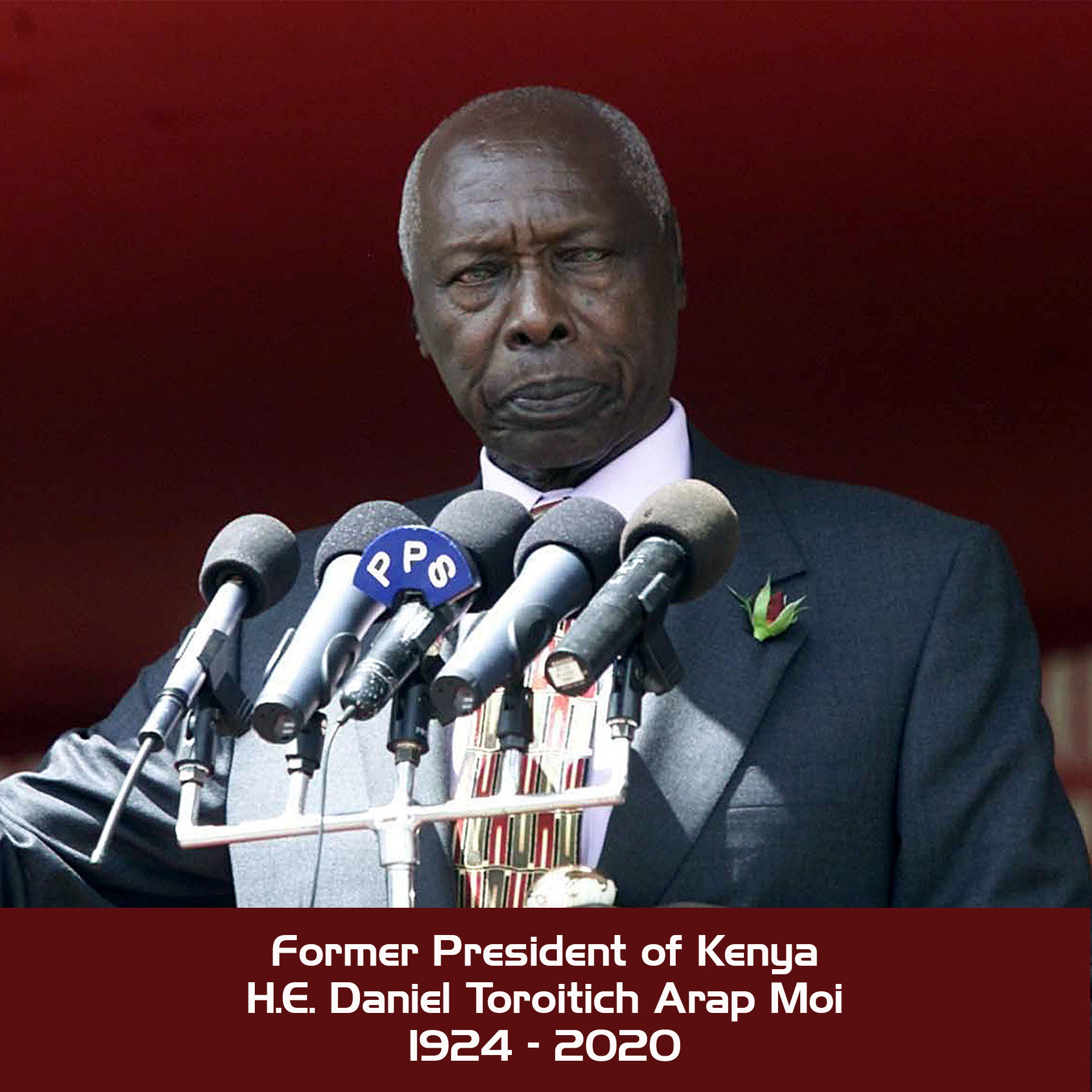Former President of the Republic of Kenya, H.E. Daniel Toroitich Arap Moi, has Died. The former president passed on peacefully in his sleep today, Tuesday 4th February 2020 at his home. President Uhuru Kenyatta, the current president, who announced the death, declared a period of national mourning and said Mr. Moi would receive a state funeral. His statement did not specify a cause of death.
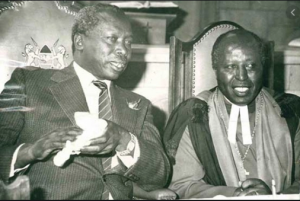
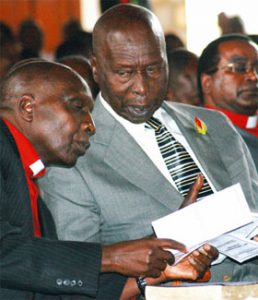
He grew up in the church among missionaries from a young age and his adoption of Christianity would come to define alot in his later years. He remained active throughout his life attending church services every week and building and supporting church projects all over the country. He remained an ardent member of the African Inland Church in Kenya, the church set up in Kenya by the African Inland Missionaries in Kenya.
Fifteen years after Kenya won independence from Britain in 1963, Mr. Moi became president on the death of Jomo Kenyatta, the country’s founding father. Mr. Moi, a former schoolteacher and national legislator, had been a handpicked vice president and served in Mr. Kenyatta’s long shadow.
Unlike the imperial Mr. Kenyatta, who governed behind closed doors, Mr. Moi traveled the country, courting its ethnic and tribal groups and gaining wide popularity. He introduced free milk for children, and pledged to do away with endemic graft and elevate Kenya’s struggling tourism-and-agriculture economy. He won Western support with anticommunist policies during the Cold War.
But after suppressing opposition and consolidating power in a single-party state, he began a 24-year autocratic reign. Mr. Moi — with his nimbus of silver hair, buttonhole rose and ivory baton — dominated life in Kenya. He was loved and loathed by many. In his tlast years he would be held as a respected statesman and politicians would troupe his home seeking his endorsement and blessings.
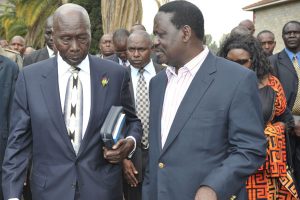
The humble boy from Kabarak village in Baringo county was born on September 2, 1924. He was raised by a single mother. Moi was sent to school by his paternal uncle. He let his flock stray, though years later he would not tolerate errant sheep. When word went around their rocky scrubland that recently arrived white missionaries was trudging around the villages in search of school candidates, his uncles were unanimous. It had to be Daniel. After all, his father had only recently died. The uncles needed any help they could get from an educated boy. At the age of 10, when he was known only as Kapkorios Toroitich, the missionaries baptised him Daniel, a name he choose from a hymn they sang at the mission, “Dare to be a Daniel, dare to stand alone …” in praise of the biblical Daniel who was thrown into a den of starved lions but came out unscathed. It was at the AIM centre that young Moi would pick up many of the habits that define his character to this day.
The Barnets loved boiled maize, millet, and traditional vegetables, which to this day remain valued items in the retired President’s menu, and partly explains why he has lived to be 95 and counting. Moi’s elder brother, Paulo Tuitoek, lived to be 104 and his sister Rebecca Chelimo clocked 100 years.
The missionaries also encouraged the future President to keep fit. His beloved sport was football and had been nicknamed “wheelbarrow” because of his strong legs, which either ran away with the ball or wreaked havoc on the ankles and toes of those he tackled on the field. To cap it all, at the mission he met the girl who would be the mother of his children, Lena Bomett.
Moi was the prime candidate to bequeath to white strangers and he adopted their Christianity wholeheartedly. He became a teacher with an enduring passion for education. He passed his London Matriculation Exam and got a public accounting certificate from London through a correspondence course. Knowledge planted ambition. His faith and belief in the new teachings won converts.
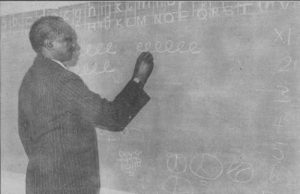
His teacher career would be jolted out of its predictable routine in 1954 by the sudden resignation of John ole Tameno, a respected veterinary officer from the Rift Valley who had represented the province in the Legislative Council (Legco). But It would take the persuasive skills of colonial-era school inspector Moses Mudavadi (ANC leader Musalia Mudavadi’s father), then working in Baringo, to convince headmaster Moi of Kabarnet Intermediate School to consider a career change.
In October 1955, an electoral college picked Moi from a list of eight nominees. The teaching chapter had come to an end. By October 18, 1955, he was one of the four African members of the Legco. One of Moi’s memorable motions in the Legco was agitating for African teachers to be allowed to form an association. This produced the Kenya National Union of Teachers in 1957.
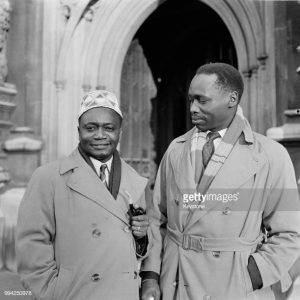
Ronald Ngala (1923 – 1972, left) and Daniel arap Moi of the newly-formed Afro-Asian-Caribbean Group visit the House of Commons in London to protest against the government’s immigration bill, 13th February 1962. (Photo by Keystone/Hulton Archive/Getty Images)
Soon he was deeply involved in national politics. He formed Kadu, the Kenyan African Democratic Union, an early party in Ngong, together John Keen, Martin Shikuku, Coast supremo Ronald Ngala. Moi’s passion for education and his impoverished past persuaded Kenyatta to make him the first minister for Education in the pioneer Cabinet of 1963. The unpromising herdsboy had morphed into a political heavyweight with influence far beyond Baringo.
After Kadu resolved to join President Kenyatta’s Kanu, Moi’s star was rising. By 2002 when former President Mwai Kibaki ruined his well-laid plans to succeed himself by propping up Kenyatta, Moi had been in office for 24 years.
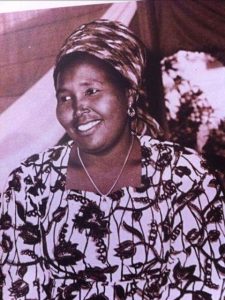
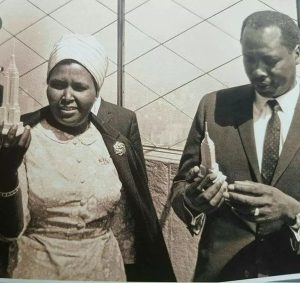
He was married to Lena Tungo Bomett in 1950 at the AIC mission in Eldama Ravine after he paid two heifers, one ox, and four sheep to the Bomett family. Moi’s long-time friend, Francis Cherogony, was the best man.
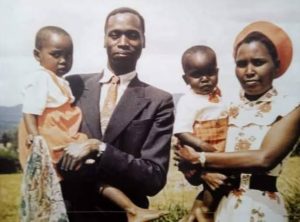
With the marriage, Lena abandoned her career as a teacher and immersed herself into bringing up her family, settling down with Moi at Tambach Government School, where his first two children, Jennifer and Jonathan Kipkemboi, were born in 1952 and 1953, respectively.
Lena’s parents, the Paul Bomett family, were pioneer Christians in Eldama Ravine.They respected Moi, the young, tall, handsome and well-mannered orphan boy.That is how Moi found himself in the Bometts’ home, where he silently admired Helena, the beautiful girl with a round face.
It was at the Bometts’ that Moi sought shelter during school holidays, unable to return home, 160 kilometres away, like the older boys.He would also stay at the home of the Christian family of Isaiah Chesire, the father of Kanu’s nominated MP, Zipporah Kittony, and former Eldoret North MP, Reuben Chesire.
Lena, born in 1926, was also a student at the AIM School in Eldama Ravine before she joined Tenwek Girls’ Boarding School in Kericho.A devout Christian, she, together with her brother William Bomett and sister Dina, became the face of educated converts.After exposure in the US with some Christian families, Lena had returned to become a primary school teacher and would visit local churches accompanied by Moi. They would each carry a Bible.
It was during this period that Lena started dating Moi, whose promotion to principal at Tambach (he was recommended by education officer Moses Mudavadi, the father of one of Moi’s vice-presidents, Musalia Mudavadi) shoved him into stardom in the region, first as a teacher, then as a preacher.
A year after Moi returned from training at Kagumo Teachers College, he married Lena in a ceremony conducted by the Reverend Erik Barnett. The choice of Erik Barnett was apt. Whereas the Barnett family was instrumental in Moi’s education, Erik’s younger brother, Paul, had baptised Lena — his first duty after returning to Kenya as a missionary.He also built Moi’s first house. Again, while Moi was in Tambach, and as Paul was going through the region opening churches and schools, he would sleep at Moi’s house.
The relationship was much deeper than that. Erik’s father, Albert Barnett, had left Australia in 1907, believing that God had called him as a missionary to Kenya.Then a bachelor, Barnett had boarded a steamship to Mombasa and travelled towards Lake Baringo, where he lived among the Tugen in what is today Kabarnet before settling at Eldama Ravine. Kabarnet town is named after him. It means “the place of Barnett”.
This started influencing a generation of African Christians whose intense devotion to the faith was impeccable. With his wife Elma, they built a mission station at Eldama Ravine where a large number of missionary families started converting locals into the faith. At times when Moi was not staying with the Bomett family, he would stay with the Barnetts. It is here that the story of Kapkorios Toroitich arap Moi and Helena Bomett, later Lena Moi, started.
Moi had taken off to the mission hoping to get an education at the Barnetts-run African Inland Mission.They would wake up at 6am, work in the vegetable gardens and haul gallons of water from the river to the station. In the afternoon, they would sit with Barnett’s Swedish wife, Elma, to learn numbers. The Barnetts made Moi the Sunday school teacher at an early age as they encouraged him to take a leadership role in the church. By 1942, he was the school captain of the government school, with Paul and Erik Barnett as his peers — the two missionary sons of Albert Barnett.
Although most of those who knew Moi in the 1950s thought he would make an excellent preacher, Moi liked teaching more than anything else. Things took a new twist for Lena in 1955, when her husband was appointed to the Legco to replace the inefficient John ole Tameno. Moi bought a Land Rover and opened a posho mill in south Baringo, then started spending his early years of marriage crisscrossing the Rift Valley as the region’s senior-most politician at the height of the emergency.

